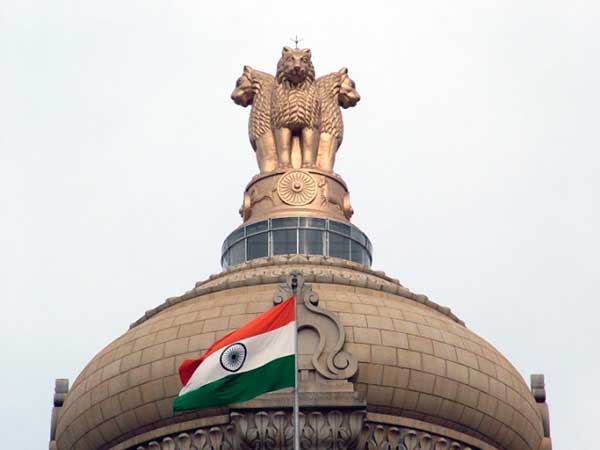Even as India has begun its quest to be a major power, desiring a marked increase in its Comprehensive National Power (CNP), it is hampered by its governance model. The current model is a British Legacy, and was apt for a colonial entity not a rising power. The extant governance model has ‘Generalists’ controlling the executive who provide advice to a body of Ministers who are also ‘Generalists’ but diehard politicians to boot – who temper every issue with political hue based on each person’s leanings.
The constitution has set no education qualification for the Legislative body, a body that has to decide the future of the country –when even a peon today has to be either a 10th or 12th Class pass!!!
At the time of Independence, and while framing the Constitution, our forefathers worked with what was available, and what was considered in the best interests of the nation at that point in time. So there is a set of executives who are selected not based on their expertise to tenant a department, but how well they scored in a ‘Generalist’ entrance exam. The merit list and vacancies then decide the posts of these ‘brilliant minds’.
The constitution has set no education qualification for the Legislative body, a body that has to decide the future of the country –when even a peon today has to be either a 10th or 12th Class pass!!! While it is true that democracy is ‘of the people, by the people, for the people’ this could be reviewed in the current scenario. At the time of Independence, India’s literacy rate was rather low, and so our forefathers felt the need for our Legislative to be all inclusive. However, the shoe is now pinching.
While it may not be feasible to bring in large scale constitutional changes to the existing system, a step-by-step approach can be done to remedy this anomaly. The need is to have experts in the executive and the legislative (especially, at the decision making level). A phased approach to this end is feasible and needs to be implemented urgently, if India desires that its rise amongst the comity of nations should progress smoothly.
The Legislative.
Currently, there is no minimum education qualification laid down as an election criterion for either the Legislative Assembly/Council of the State, or the Parliament. It is from these elected representatives that the Ministers are selected to form policies to better the future of the people of India. We have some unique cases, wherein barring a few there have been a spate of Finance Ministers who have no learning or expertise in this domain. Same is the case with Education, Defence, External Affairs Ministries and the rest.
…it is recommended that the Council of Ministers should be selected from the experts in respective fields and not from the elected bodies in the Assemblies or the Parliament.
While India wallowed in its ‘Hindu rate of growth’ it did not matter; however with its economic rise, and with it the expectations of not only the people within but also the weaker nations, such a ‘generalist’ approach may not work. It is rather anachronistic that India’s economic rise was made feasible by an expert who was called to lead the Finance Ministry. He brought along with him his protégé to head the Planning Commission, so that the two together could script Indi’s economic rise. It was the foresight of the then PM, who gave full freedom to the two to pull India back from the brink. That India is considered a rising economic power had its foundations in that landmark decision. Of course successive governments, less UPA II in particular, continued with the same policies and led India up the path of steady economic growth.
There is a need for similar approach in all departments – hence it is recommended that the Council of Ministers should be selected from the experts in respective fields and not from the elected bodies in the Assemblies or the Parliament. These Ministers should then be confirmed by the respective Assemblies or Parliament and then be answerable to the elected representatives.
Should they become nominated members of the Assembly or the Parliament is a moot point. It would be better if they are not, as then they will retain their neutrality of thought and not be swayed by any party ideology. However, should there be such experts within the elected body they could also be placed as per their qualifications and expertise by the PM/CM in the Council of Ministers.
The Parliament Standing Committees and similar Assembly Standing Committees or any other such Commissions/Committees as deemed necessary, could then take the annual update from these ministers, the powers of which need to be concurrently strengthened. Such a model would have a far reaching impact on governance as a whole and augurs well for India’s rise. The necessary constitutional amendments should be processed in a bipartisan manner by all parties, keeping the larger good mind and ensuring that the required ‘checks and balances’ are in place.
…despite having a stringent exam for selecting the best brains in the country, the flaw lies in the manner of selection and allotment of departments – jack of all trades and master of none.
But without a similar exercise in the Executive, such an exercise would not be very effective.
The Executive.
The executive that advises the legislative on the policy issue is full of ‘generalists’ with limited knowledge of the domain. The entrance exam, as designed by the UPSC is general in nature, with a Part-I that is only a screening test with focus on analytical abilities and understanding rather than the ability to memorize. Marks scored here are not carried forward, with the SC/ST and OBC having a lower pass percentage than the General Cadre.
The Mains and the Interview form the next stage of the exams and Marks thus obtained by the candidates in the Main Examination (written part as well as interview) determine their final ranking. Candidates are allotted to the various Services keeping in view their overall merit and the preferences expressed by them for the various Services and Posts.
No credence is given to the qualification of the candidate to tenant the department so allotted. Thus a History (Major) can be allotted to the department of Audit – however anyone wanting to become an auditor would need to be a CA (Chartered Accountant) or a Commerce graduate/post graduate! Thus despite having a stringent exam for selecting the best brains in the country, the flaw lies in the manner of selection and allotment of departments – jack of all trades and master of none. The common denominator that they have formulated is to strictly interpret the government rules and regularizations. So with that basic grounding they fit themselves in any ministry or department. It is to their credit that despite such a system there are some who have emerged as brilliant in the fields where they have been placed. But they are few and far between, and the need is to increase their numbers, if India is to ensure its smooth rise.
…since the security of the country has implications in the Internal Security and geo-political domains, there is a need for cross posting of such experts (including the uniformed officers) into the Ministries of Defence, Home and External Affairs.
Both Ramachandra Guha (‘A modest proposal to improve governance’, Hindustan Times, 27 Aug 2016) and Manish Sabharwal (‘Day of the specialist’, Indian Express, 29 Aug 2016), have pitched for lateral entry of specialists at the decision making level in some proportion to the ‘generalists’. But is it enough? Would the generalists allow the lateral entries to function effectively?
The need is for a similar revamp, as for the Legislative, by reconstituting the entrance exam itself. The Government must lay down the education qualification deemed necessary for the various departments and intimate to the UPSC (some departments could have a common requirement). Also, all colleges must be asked to provide ‘Public Administration’ as an elective subject for graduation, which must be a compulsory for those desiring to join as government servants. Similarly, foreign language and International Relations/Political Science must be a compulsory education qualification for those keen to become career diplomats.
With this in place the candidates should apply for the departments they are eligible for as per their education qualification. The exams, interview and selection should be conducted accordingly. The interview should also include a panel of experts to gauge the candidate’s capabilities for the department.
In matters of security, there is a need for the Services to be ‘integrated’ into the Ministry of Defence, as such expertise would not be available elsewhere. Further, since the security of the country has implications in the Internal Security and geo-political domains, there is a need for cross posting of such experts (including the uniformed officers) into the Ministries of Defence, Home and External Affairs.
As India strives to rise and improve its CNP to achieve a major power status, there is a crying need to revamp the Legislative and the Executive in a manner that they complement each other and are competent to face the challenges ahead.
By the time such candidates reach the decision making levels, they would be experts in their fields and with the Ministers, who would also be experts lay down policies that would be in the best interests of the Nation, with the necessary political tempering done by the PM/CM and the Standing Committees/Commissions.
As a start, lateral induction of experts should be considered along with providing a timeframe for the existing cadre strength to acquire the requisite education qualification as per the new dispensation. The proposed modified structure of the exams should come in force after atleast 3 years, thereby giving adequate notice to the aspirants.
Conclusion
As India strives to rise and improve its CNP to achieve a major power status, there is a crying need to revamp the Legislative and the Executive in a manner that they complement each other and are competent to face the challenges ahead. Towards this end, there is a need to ensure that experts tenant the Council of Ministers, and similarly the Central Services should change from being ‘generalists’ to experts.
The above recommendations, done in a phased manner would enable a smooth transformation and revitalise Indian Governance.
Bibliography
- UPSC Exam Notification for 2016, http://www.upsc.gov.in/exams/notifications/2016/CSP_IFS/CSP/CSP_2016_Engl_Notice.pdf
- UPSC SYLLABUS/IAS SYLLABUSFOR MAINS & PRELIMS/CIVIL SERVICES SYLLABUS, www.byjus.com/ias/upsc-syllabus
- Civil Services Examination, https://en.wikipedia.org/wiki/Main_Page
- Constitution of India (with amendments)Mar 2016, http://indiacode.nic.in/coiweb/welcome.html
- Qualification and Disqualification of MPs and MLAs, Handbook for Candidates, http://eci.nic.in/archive/handbook/CANDIDATES/cch2/cch2_5.htm






its a nice and good article so, please send me some more information about this